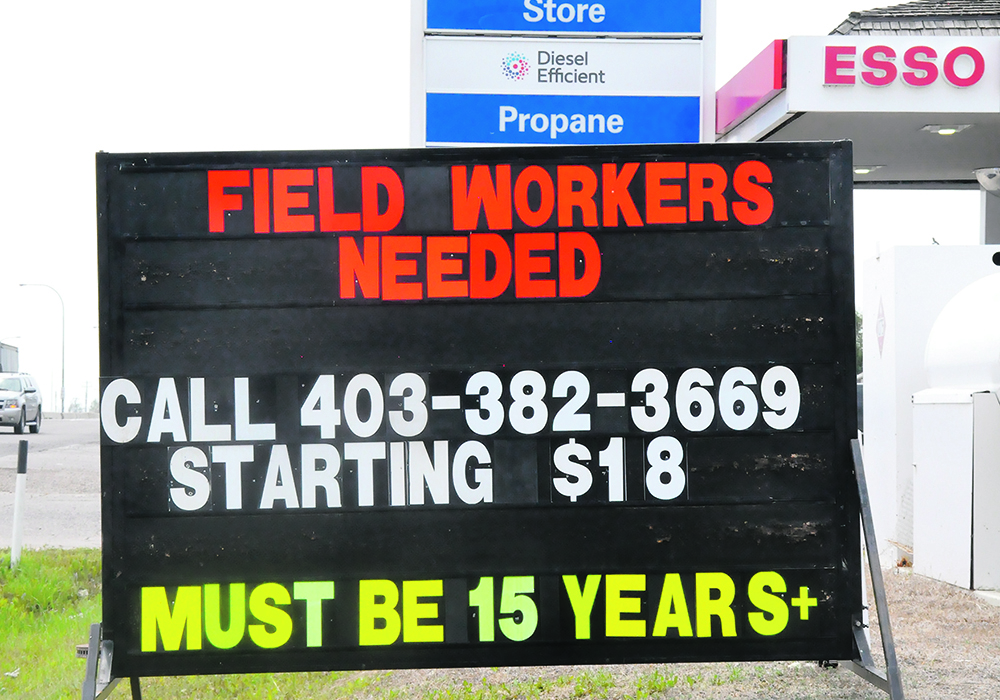A county, a municipal district and four towns work together to access the provincial Rural Renewal Stream program
Southern Alberta’s agriculture sector may be booming but the workforce necessary to underpin the growth needs a spark if it is to match the industry’s plans.
A collection of communities along the Highway 3 corridor between Medicine Hat and Lethbridge hopes to tap a provincial immigration program to help fill the gap between jobs and labour.
Lethbridge County recently announced it was joining a partnership with the town and Municipal District of Taber, along with Vauxhall, Coaldale and Picture Butte, to access foreign workers through the provincial Rural Renewal Stream program offered by the Alberta government.
Read Also

Why feds imposed EV tariffs
Moe and Kinew have a fight on their hands when it comes to eliminating the EV tariff. Canada has to worry about pissing off the U.S. and Mexico and hundreds of thousands of auto workers.
The program allows designated rural communities to recruit for full-time positions from foreign nationals and be able to provide timely applications for permanent residency as well as settlement services.
Currently, nearly 30 communities are designated under the program with up to 630 individuals allocated of the nearly 10,000 available to be nominated through the Alberta Advantage Immigration Program, a joint federal-provincial initiative.
Tory Campbell, reeve of Lethbridge County, said the labour shortage in the region is substantial and is across the board when it comes to the ag sector as operations ranging from feedlots to agricultural processors to greenhouses feel the pinch.
“I think we’re really feeling it here in southern Alberta,” said Campbell. “It’s getting harder and harder to find people willing to put in some longer hours, the seasonality, the transportation logistics and all of that. It’s something we’re keenly aware of here in Lethbridge County, that there is a challenge facing our producers.”
Lethbridge County is the latest addition to the regional designation with the main effort being led by the Town of Taber, which spearheaded the area’s Rural Renewal Designation last year.
“We’re fortunate enough to be in the heart of Canada’s premier food corridor and to have a booming agri-processing industry,” said Campbell, highlighting the McCain Foods potato processing facility expansion, which is expected to add 260 new jobs. “They are going to need more employees, so we just felt this is a natural fit for us.”
Alberta leads the way when it comes to provincial migration, but Campbell said most of those workers choose the province’s larger centres to settle in.
He said he hopes the Rural Renewal program will help recruit some of those workers to small centres by providing more than just a job and a paycheque, but a home.
“We need people. We need people here. We need people to fill these vacancies to come here to work, to live and be part of this community. If there are immigration challenges that are present, this program provides a pathway where people can come to southern Alberta and work here and call this place home. Not only for now, but into the future,” said Campbell.
Alberta is expected to receive more than 1.4 million international migrants over the next 30 years with 80 percent expected to settle in the province’s two largest cities, Calgary and Edmonton, if historical trends continue, according to a recently released government report.
















